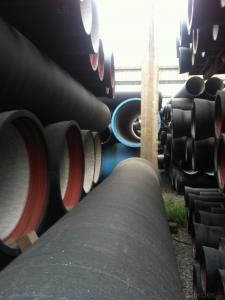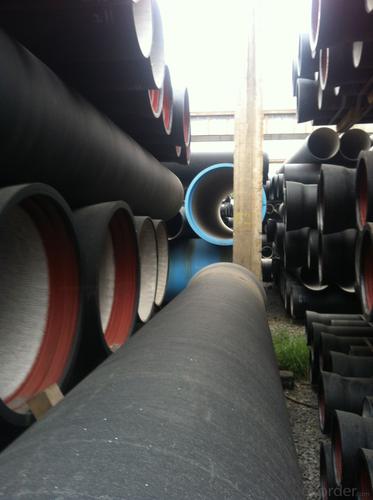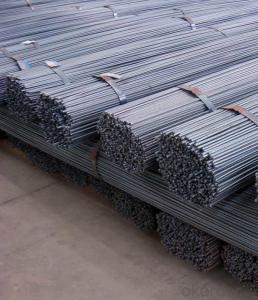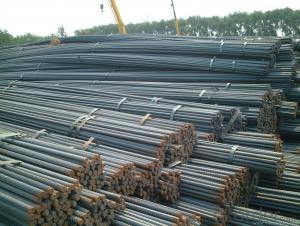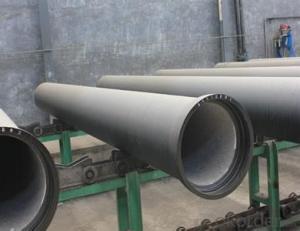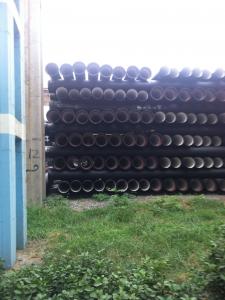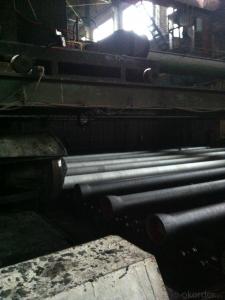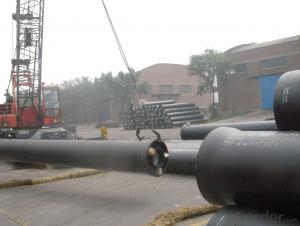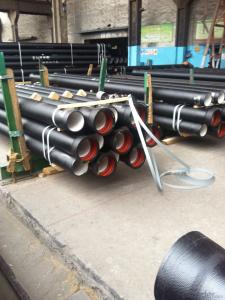DUCTILE IRON PIPE AND PIPE FITTINGS K7 CLASS DN400
- Loading Port:
- Tianjin
- Payment Terms:
- TT OR LC
- Min Order Qty:
- 32 pc
- Supply Capability:
- 3000 pc/month
OKorder Service Pledge
OKorder Financial Service
You Might Also Like
· Material : Ductile Cast Iron
· Size Range : DN 80mm to DN 2000mm
· Unit Effective Length : 6m or 5.7m
· Manufacture Standard: ISO 2531:1998/ EN 545:2006/EN 598:2007
· Annual capacity : 200,000 tons
· Coating Exterior: Zinc 130g/m2 according to ISO 8179-1 and bitumen coating 70 microns.
· Cement Interior: Portland Cement/ High Alumina Cement/ Sulphate Resisting Cement Lining according to ISO 4179
· Special requirements on external coating and internal lining can be applied
· We also provide accessories such as SBR/EPDM rubber gaskets, lubricant paste, pipe caps, PE sleeves, etc.
Additional Parts:
Each pipe is strictly inspected according to related standard to ensure permanently high performance.
Easy Installation at site and service free for life
Long Service Lifespan
Quotation will arrive you within 24hours once we get your inquiry.
We guarantee offering you a competitive price.
A copy of original inspection reports of pipes will be offered after shipment.
Photos of loading process will be sent to the customer after shipment effect.
We will follow-up the delivery progress after shipment effect and update to the customer on weekly basis.
- Q: How are ductile iron pipes protected against mechanical damage?
- Ductile iron pipes are protected against mechanical damage through various measures. One common method is the application of protective coatings on the external surface of the pipe. These coatings, such as epoxy or polyethylene, provide a barrier against abrasion and impact, reducing the risk of mechanical damage. Additionally, ductile iron pipes are often installed with proper bedding and backfill materials, ensuring a stable and supportive environment that minimizes the potential for external forces to cause damage. Furthermore, the pipes can be designed with thicker walls or ribs to enhance their resistance to mechanical stress. Overall, a combination of protective coatings, appropriate installation techniques, and structural design considerations helps safeguard ductile iron pipes against mechanical damage.
- Q: Can ductile iron pipes be used for underwater installations?
- Yes, ductile iron pipes can be used for underwater installations. Ductile iron is a strong and durable material that can withstand the harsh conditions of underwater environments, making it suitable for various applications such as water distribution, sewage systems, and marine infrastructure.
- Q: How are ductile iron pipes protected against internal scaling or buildup?
- Ductile iron pipes are protected against internal scaling or buildup through the use of various coatings and linings. One commonly used method is cement mortar lining, where a layer of cement mortar is applied to the inner surface of the pipe to prevent scaling and corrosion. Additionally, epoxy coatings are also utilized, which provide a smooth and protective layer that inhibits the formation of scale and buildup. These protective measures help to ensure the longevity and efficiency of ductile iron pipes in various applications.
- Q: What is the expected joint restraint method for ductile iron pipes?
- The expected joint restraint method for ductile iron pipes is typically mechanical joint restraints, such as gland and follower glands or wedge-action restraints, which provide a secure and reliable connection while allowing for expansion and contraction of the pipes.
- Q: What does ductile iron pipe "K" mean?
- The higher the K level, the better the quality, and the national standard requires K9
- Q: What is the disadvantage of nodular cast iron in excess of silicon?
- Excessive silicon control results in the formation of nodular graphite in large cross section ductile iron and reduces the mechanical properties of castings.
- Q: What is the minimum cover requirement for ductile iron pipes?
- The minimum cover requirement for ductile iron pipes is typically determined by the specific project or engineering design considerations. However, as a general guideline, the minimum cover requirement for ductile iron pipes is often recommended to be at least 2 feet (or 0.6 meters) from the top of the pipe to the finished ground surface. This minimum cover requirement helps to provide adequate protection to the pipe from external loads, soil settlement, and potential damage from construction activities. It also helps to maintain the structural integrity and longevity of the ductile iron pipe system. It is important to note that local building codes, industry standards, and project specifications may dictate specific minimum cover requirements, so it is crucial to consult these resources for accurate and up-to-date information.
- Q: Do rigid cement cast iron pipes need cement piers?
- Ductile weakness: ductile cast iron pipes connected by human factors such as the operation level of responsibility, influence, construction not convenient. The advantages of PE PE PE pipe has good corrosion resistance and its anti inorganic performance than that of the metal pipe is much stronger in the buried without corrosion, construction convenient. Small diameter PE pipe in the price performance ratio is better than that of steel and ductile iron.PE tube have disadvantages: benzene, gasoline, carbon tetrachloride and other organic solvents have certain effect on pe. If the organic solvent is infiltrated into the polyethylene, the swelling will occur, and its physical properties will be decreased. Its pressure resistance and temperature resistance are poor.
- Q: What are the different lining materials available for ductile iron pipe?
- Some of the different lining materials available for ductile iron pipe include cement mortar lining, polyurethane lining, polyethylene lining, and epoxy lining. These linings help to protect the pipe from corrosion and extend its lifespan.
- Q: How do ductile iron pipes perform in high-pressure applications?
- Ductile iron pipes perform exceptionally well in high-pressure applications. Due to their superior strength and durability, they can withstand the high-pressure conditions without any significant issues. The ductile iron material is known for its ability to handle high-pressure situations, ensuring the reliability and long-lasting performance of the pipes.
Send your message to us
DUCTILE IRON PIPE AND PIPE FITTINGS K7 CLASS DN400
- Loading Port:
- Tianjin
- Payment Terms:
- TT OR LC
- Min Order Qty:
- 32 pc
- Supply Capability:
- 3000 pc/month
OKorder Service Pledge
OKorder Financial Service
Similar products
Hot products
Hot Searches
Related keywords
